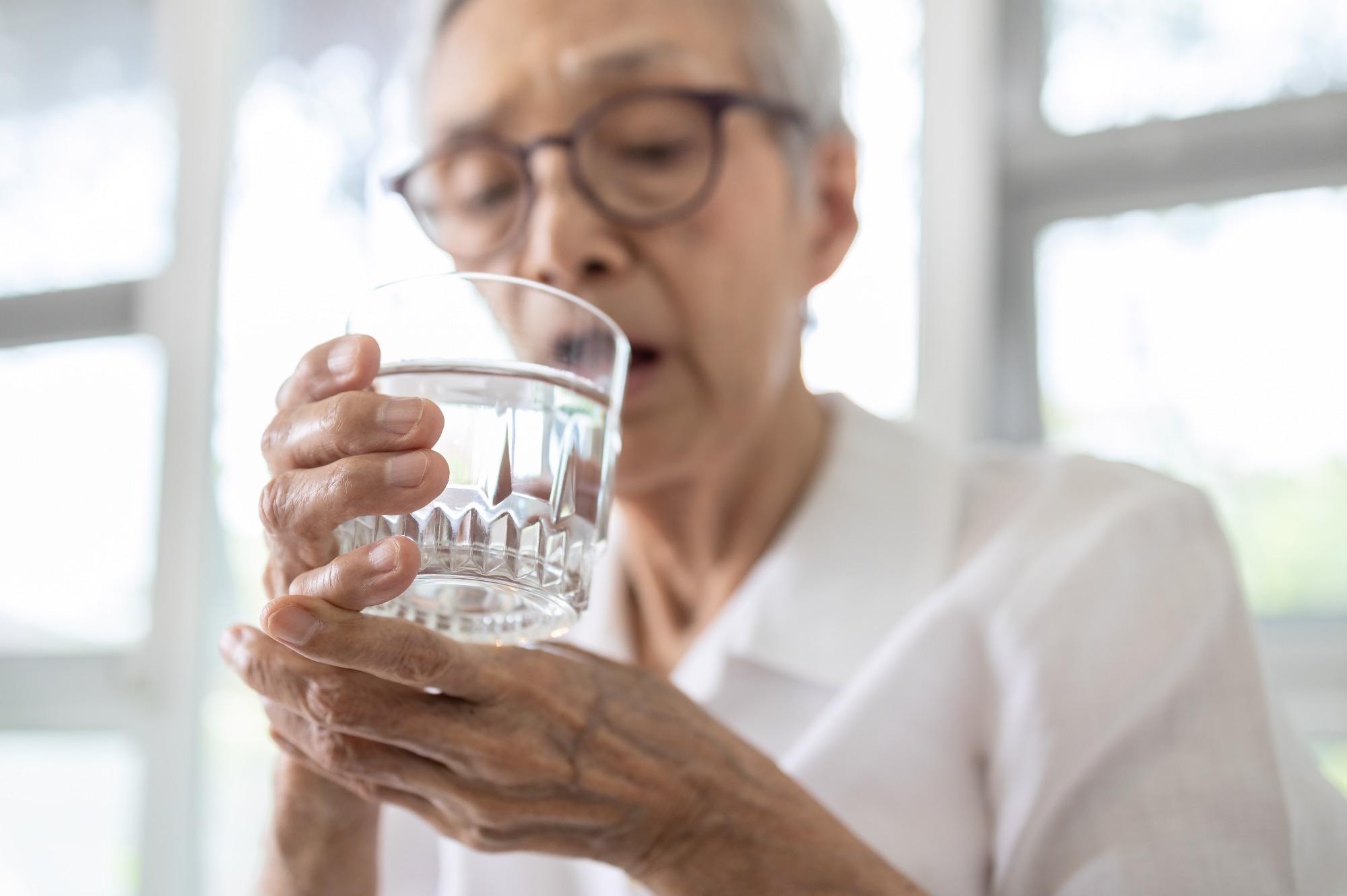
Image Credit: Shutterstock.com / CGN089
The loss of hand strength can make performing everyday tasks a constant struggle for many people. Opening jars, picking up your child or grandchild, gripping a steering wheel, or even brushing your teeth are all tasks that hand weakness can make more difficult and sometimes impossible. Hand weakness can arise from many ailments such as rheumatoid arthritis, nerve damage, and strokes.
The BioTech start-up founded by four engineering graduates — including Shea Quinn, Rowan Armstrong, and Ross O’Hanlon — has devised the glove with sufferers of hand-weakness due to aging, motor neuron disease, and carpal tunnel syndrome in mind.
O’ Hanlon, in particular, says that he was inspired to create the glove when a close family member developed multiple sclerosis, and he watched as they began to struggle with everyday tasks as simple as drinking a glass of water.
Being an engineer, I decided to use technology to tackle these challenges head-on with the aim of helping people like my aunt to retain their autonomy.
Ross O’Hanlon, Mechatronics engineer and Co-founder, BioLiberty
Turning Intention to Independence
The glove uses electromyography (EMG) — a diagnostic procedure to assess the health of muscles and the control of nerve cells — to detect electrical activity in response to nerve stimulation. This can be translated as the wearer’s intention to manipulate an object.
This intention can then be converted to force that can be applied to the object in question, allowing the wearer to twist, grip, or hold it.
While there are already products widely commercially available to help boost grip strength for sufferers of hand weakness, O’Hanlon explains that these tend to be tools designed for specific jobs such as opening jars. BioLiberty’s lightweight glove, on the other hand, is what O’ Hanlon describes as an ‘all-encompassing solution’ that can perform a wide range of tasks.
The AI-powered glove could join other procedures recommended by medical professionals to return grip strength, such as regular hand exercises as well as providing relief for sufferers that can’t be helped significantly by such measures.
The Cost of an Ever-Aging Population
The team at BioLiberty estimates that in the UK alone 2.5 million people suffer from hand weakness at a cost to the Nation Health Service (NHS) of about £2.5 billion per year — that’s about 3.5 billion USD.
And as the population ages, these figures are only set to increase. Thus, with aging and age-related disease as a significant cause of hand-weakness, the condition too can only increase.
Thankfully, BioLiberty’s AI glove has recently received a significant financial boost from Edinburgh Business School’s Incubator program — described as a ‘safe harbor’ for young, innovative start-ups.
The team has already built a working prototype glove and now hopes that they can start to roll the tech out to homes across the UK.
As well as those affected by illness, the population continues to age, and this places increasing pressure on care services. We wanted to support independent living and healthy aging by enabling individuals to live more comfortably in their own homes for longer.
Ross O’Hanlon, Mechatronics engineer and Co-founder, BioLiberty
References
- ‘An Assistive Device and Platform designed to tackle Hand Weakness,’ BioLiberty, [https://www.bioliberty.co.uk/index.html]
Disclaimer: The views expressed here are those of the author expressed in their private capacity and do not necessarily represent the views of AZoM.com Limited T/A AZoNetwork the owner and operator of this website. This disclaimer forms part of the Terms and conditions of use of this website.